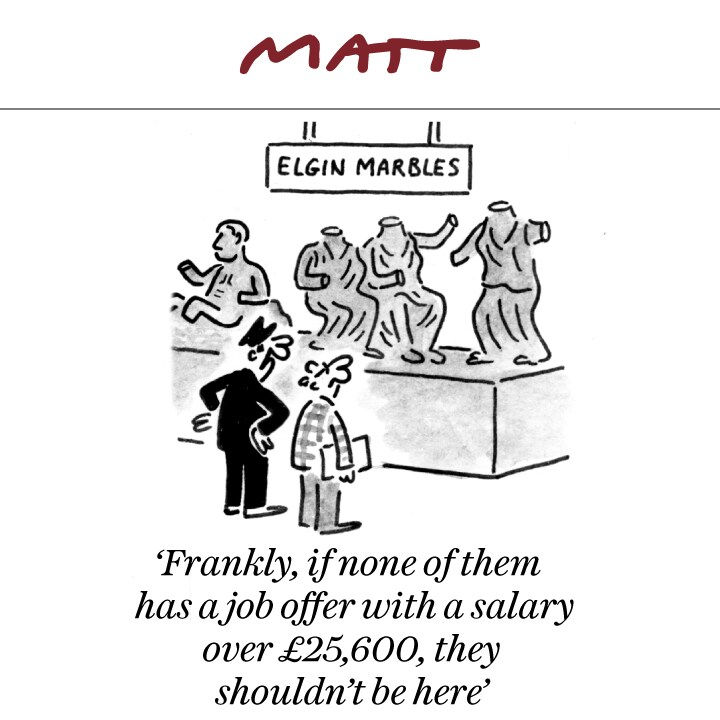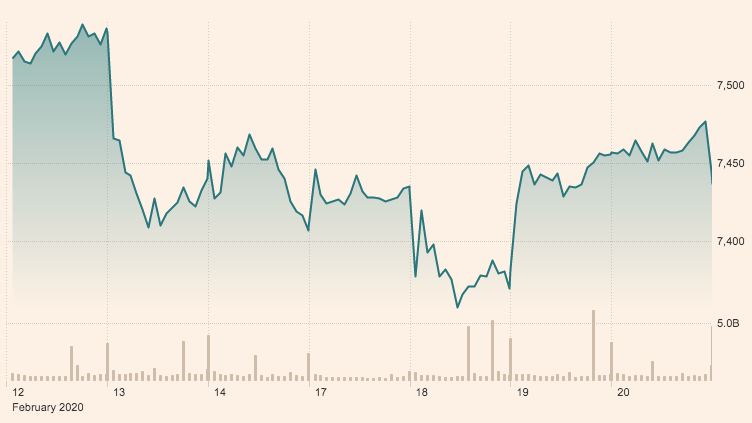- Charlotte Street Partners

- Feb 21, 2020
- 4 min read
Mr Zuckerberg goes to Brussels
Written by Javier Maquieira, Associate
Edited by Kevin Pringle , Partner
Good morning,
The world has a new advocate for global regulation of big tech companies: Facebook. Or at least that seems to be Mark Zuckerberg’s ambition. Although the social media magnate had already voiced his ‘preference’ for a more regulated technology industry one year ago, this week he’s come back with some proposals. Under the title ‘Charting a Way Forward: Online Content Regulation’, Facebook’s latest white paper proposes that regulators examine the ‘systems and procedures’ used by tech companies to trace harmful material but should not hold them liable for content on their platforms. As part of Zuckerberg’s plans to position his company as an open and transparent player with a say on regulation, the chief executive of Facebook landed in Brussels on Monday to meet with European Union officials and journalists and share his new vision. Unluckily for him, his proposal got rejected right away. But why? For starters, the European Commission is determined to keep the technology sector in check. Two days after Zuckerberg’s visit, EU officials presented their own white paper on artificial intelligence with measures to limit its perceived dangers in Europe. They also announced plans to create a ‘single European data space’ promoting a free and secure flow of digital information. To enable these policy initiatives, the EU’s executive arm wants to allow firms to share data and invest in cloud services that facilitate sharing. What’s more, Commission officials remain wary of Facebook’s motives, with Thierry Breton, commissioner for the internal market, saying that the tech company is “too low in terms of responsibility and regulation”. After cutting off Zuckerberg from speaking, Breton added that “it’s not for us to adapt to those companies, but for them to adapt to us.” While the EU’s strategy aims to open the data clusters that have rendered dominant tech companies so powerful, it will be interesting to see how it does it and what the consequences are. So far, the EU has focused on writing the rules, but it still has a long way to lead innovation ‘at home’ by investing in its own technologies.
News
The foreign secretary, Dominic Raab, has announced that British citizens on the quarantined Diamond Princess cruise ship will be flown back to the UK today. However, only those that have tested negative for the coronavirus disease will be able to board the flight before being quarantined on their return. Britons with signs of the illness will remain in Japan for treatment. German police has identified the gunman who killed nine people in shisha bars in Hanau as Tobias Rathjen. The 43-year-old, who was found dead in his flat along with his 72-year-old mother, is thought to have run a far-right website. The attack is now being treated as an act of domestic terrorism by German authorities. EU member states are in deadlock over the bloc’s multiannual budget, as leaders attempt to fill the €60bn to €75bn funding gap created by Britain’s departure. Emmanuel Macron, the French president, insisted that the EU must not allow itself to be derailed by Brexit, but opposition by Germany and other northern European countries over plans to slash rebates they receive on their EU budget contributions overshadowed the negotiations. (£)
Business and economy
The prime minister, Boris Johnson, is reportedly considering the creation of a single new committee of business advisers in the coming months. As a result of the overhaul, dozens of business leaders could be forced to give up their roles as advisers to the prime minister as part of the quintet of business councils established by his predecessor, Theresa May, in 2018. Office for National Statistics (ONS) statistics show that retail sales increased more than expected in January, as shoppers loosened their purse strings after the general election result reduced near-term uncertainty. The three-month figures include the whole of the Christmas and post-Christmas period, but the January result seems to reflect a short-term boost caused by the Conservatives' victory in the general election. The International Air Transport Association (IATA) has forecast a fall in air travel demand for the first time in more than a decade as a result of coronavirus. Overall, airlines in the Asia Pacific region are projected to see a $27.8bn revenue loss this year, while those outside Asia are expected to lose $1.5bn in revenue, according to IATA’s forecasts.
Columns of note
Philip Collins argues in The Times that, although Michael Bloomberg may be the only Democratic candidate Donald Trump fears, the billionaire and former New York City mayor will need more empathy and sharper delivery to win. In Collins’s opinion, Bloomberg remains the best hope in the field, given that the left doesn’t stand a chance in American presidential politics. (£) In The Guardian, Richard Seymour writes that Caroline Flack’s death is an example of how social media has democratised cruelty. According to Seymour, the fact that anyone can be a public figure and everyone can join a mob online creates a destructive dynamic in which all of us seem to take pleasure in participating.

Source: The Telegraph
Markets
What happened yesterday?
London stocks closed slightly weaker amid worries about coronavirus. The FTSE 100 closed down 0.27% at 7,436.64, while sterling was weaker both against the dollar by 0.32% at $1.2879 and versus the euro by 0.16% at €1.1939. In corporate news, Smith & Nephew rocketed 7.26%, while NMC Health was ahead 9.5% following heavy losses in the previous session. Lloyds Banking Group (+1.38%) was also up, even after it said underlying profit fell seven per cent last year. On the downside, Imperial Brands (-3.55%), Carnival (-1.73%), and GlaxoSmithKline (-0.3%) were all weaker as the three stocks went ex-dividend. Across the Atlantic, US stocks finished lower as indices dropped from the record highs seen on Wednesday. The Dow Jones Industrial Average was down 0.44% at 29,219.98, while the S&P 500 was 0.38% weaker at 3,373.23 and the Nasdaq Composite was 0.67% softer at 9,750.96.
What's happening today?
Finals Pearson AGMs Caledonian Tst.
UK Economic Announcements (09:30) Public Sector Net Borrowing Int. Economic Announcements (07:00) Import Price Index (GER) (10:00) Consumer Price Index (EU) (15:00) Existing Home Soles (US)

Did you know?
Driven by a desire to build replicas of world landmarks, China is home to a Tower Bridge, a Sydney Opera House, two Eiffel Towers, four Arcs de Triomphe and 10 White Houses.
Parliamentary highlights
House of Commons No business scheduled. House of Lords No business scheduled. Scottish Parliament No business scheduled.

Comments